Local elections: Candidates across Cork county have an eye on problem areas
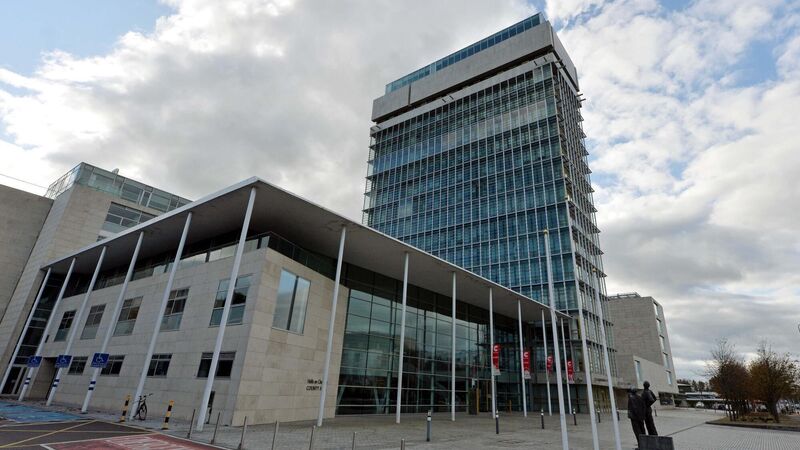
For the last election— which was held on May 24, 2019 — 107 candidates stood for the 55 seats and a total of 133,800 votes were cast, slightly more than a third of the county’s population (when the city is excluded). Picture Denis Minihane.
EVEN with Cork County Council being the biggest local authority in the country, with the largest budget outside of Dublin — councillors approved record breaking expenditure of €458m for 2024 in November — the list of new candidates lining up to seek a seat is not, at this stage, too long.
Many sitting councillors have opted to run again and a smaller number of new candidates have declared their intention to contest for seats.
For the last election— which was held on May 24, 2019 — 107 candidates stood for the 55 seats and a total of 133,800 votes were cast, slightly more than a third of the county’s population (when the city is excluded). While Fianna Fáil’s Seamus McGrath secured one of the highest first-preference votes in the country (4,247 votes) to be elected in Carrigaline Municipal District, Audrey Buckley, his running mate in the area — once a small village now one of Cork’s most populous towns — was elected with just 694 first preference votes. She was pushed over the quota thanks to Mr McGrath’s huge surplus.
Fine Gael emerged with the most number of seats (20) in the 2019 poll and this represented an increase of four seats on its tally from 2014. Fianna Fáil increased its tally by one seat, up to 18, while Sinn Féin had a bad day at the ballot box, losing all but two of their 10 seats won in 2014. Independents maintained their 10 seats while the Green Party won two seats and Holly Cairns won the sole Social Democrat seat. Labour returned two seats, councillor James Kennedy in Mallow and councillor Cathal Rasmussen in Cobh.
Local elections, while full of drama and incidents, are handicapped by a perception that nothing of importance is decided in the council chamber, a forum which is viewed by many as a talking shop. This perception was backed up earlier this year by a Council of Europe report.
The verdict of the report card from the Congress of Local and Regional Authorities in Europe (CLRAE) was a mixed one for Ireland and echoes many of the complaints Irish people have about local authorities and their councillors.
The clawback of power by central government means local authorities are becoming less relevant in our daily lives and this violates a fundamental principle of how Europe views how public affairs should be governed — as close as possible to the people.
Both Fianna Fáil and Fine Gael have selected their bench of candidates for the various electoral areas and Sinn Féin have selected candidates for most council areas. The Green Party have also selected a number of candidates as have the Social Democrats, a party which saw one of its councillors, Holly Cairns, who was elected for the first time in 2019, win a Dáil seat in 2020 and elected leader of her party last year.
'Things were niggling me': Cork local election candidate wants to be change maker https://t.co/NrK71yNfXT
— EchoLive.ie (@echolivecork) January 3, 2024
There will be a raft of Independents in the running also and the likelihood of candidates from two new parties, with party leaders in the county, to be in the fray. These parties are Independent Ireland, whose leader is Michael Collins TD from Bantry, and Ireland First, which is a party led by Derek Blighe, who has declared himself to be a candidate on his X biography note.
Mr Michael Collins said in a recent interview with The Echo that the party would be standing candidates at in the forthcoming elections, the local, the European and the general elections.
What may be as important as the parties and candidates that will be running in the election is the raft of issues that will be raised during the campaign. To state the obvious, perhaps, but local elections are on local issues — mostly — but there’s no denying either that hot topics nationally will also be raised when candidates go from door to door.
“It’s all about local issues and County Council issues,” said councillor John Paul O’Shea, the Fine Gael leader on Cork County Council. “The debate will be on housing, roads, achieving Uisce Éireann/Irish Water capabilities as regards their capital programme.
“It’s all about local planning issues, basic bread and butter services that Cork County Council provides from day to day.
“I don’t think it should be fought on national issues, local elections are very different to national elections and European elections,” he said. “I will be putting forward my own issues regarding Kanturk/Mallow/Charleville in the new year.” Mr O’Shea — like all councillors — realises one of the hot issues on the doorsteps with people is a perceived lack of council workers to fill potholes, clean drains, to tidy away litter and to carry out the umpteen different tasks that need to be carried to keep the fabric of normal life together; those tasks that nobody ever notices being carried out but when they’re not done, everyone notices.
“You can see from the budget that we’ve made significant strides in improving that as there are going to be more general operatives hired — we are down in numbers and that’s going to be brought up to the 345 which was mentioned during budget discussions.
“And also we’ve got a new €600,000 fund to enhance our frontline services even more.” His counterpart in Fianna Fáil, Mr McGrath, is in agreement that housing, roads, and other local issues will top the list of concerns of voters when he and his party colleagues hit the canvass trail in earnest in the new year.
“Undoubtedly housing will be the top issue and when I say that, I mean all strands of housing, social housing obviously, affordability of housing, cost rental, we want to see these kind of schemes rolled out to a greater extent.
“To be fair to Cork County Council, we’ve been pro-active on these schemes, cost rental, affordable housing, we’ve achieved our social housing targets,” he said. “It is going to be a major issue, there’s no doubt about it.
“We still have a very acute population crisis and people who are finding it difficult to get on the property ladder, finding it difficult to get rental accommodation and, obviously, people in emergency accommodation as well.
“Even though there’s a lot of new property coming on stream, there’s a lot of activity, there’s a lot of structural programme on the way, it’s a difficult problem to get on top of because there’s such strong demand for housing of all forms while there’s an increase in supply and delivery.”
He pointed to a raft of central Government schemes which are being rolled out at local level, to help first time buyers, the first home scheme, the help to buy affordable housing model, the local authority home loans.
“There are lots of schemes there but obviously we need to continue to try and do more.” According to Mr McGrath, national issues such as health — over which county councillors have little if any say — will bleed into the local campaign.
“When you’re a government party, you’re going to have issues like the health service featuring, no doubt about it, we’re seeing the emergency departments and waiting lists.”
John O’Sullivan, who hails from Millstreet, is a first-time candidate and will be hoping to win a seat for Sinn Féin in the Macroom/Millstreet area. The party is without a seat in the council at present after the announcement that councillor Danielle Twomey, its sole representative, was resigning from the party. “Housing would be the big one we get at the doors,” he said.
“The derelict houses around the county, the huge number of boarded-up properties, that’s absolutely something we have to look at.” The candidate is also advocating for a relaxation in planning laws as the feedback he’s getting is that many people are being refused planning to build in rural areas.
Another issue which has cropped up already is how well SouthDoc is functioning in the region and while councillors are not directly responsible for the out of hours service, it’s certainly been the subject of many complaints Mr O’Sullivan and others have been receiving.
Aspiring candidates will be hoping to have received vouchers for a good pair of shoes in their Christmas stockings as they will be pounding the potholed roads and trip hazard footpaths of the county over the next few months in an effort to get the votes to get elected. Election day will be early June and in the coming weeks, Christmas decorations will be replaced in local towns and villages with election posters. Whether we realise it or not, the campaign is underway.
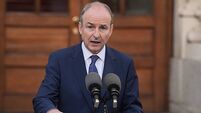
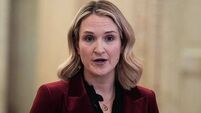
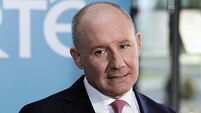
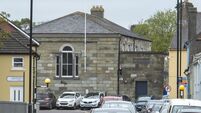






 App?
App?


